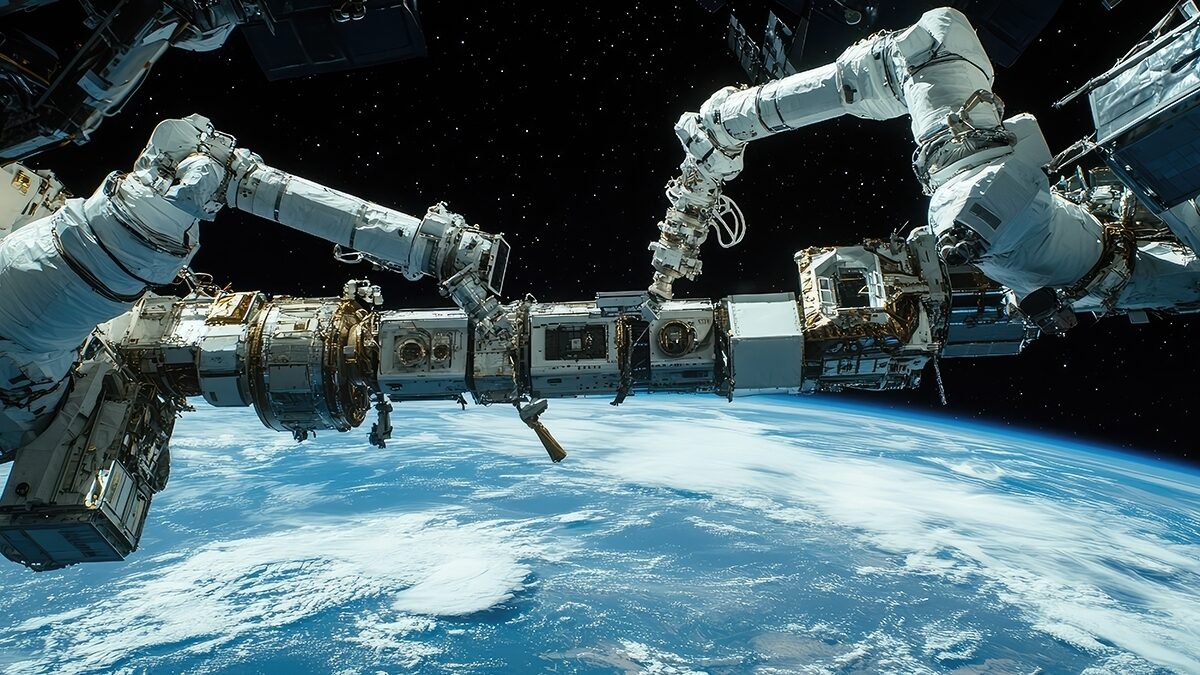

The University’s Soft Systems Group is at the forefront of the emerging fields of soft robotics and microfluidic systems, exploring the fundamentals and applications at the intersection of electronics, biology, and fluidic systems.
Soft systems represent a new way of thinking about robotics, challenging traditional manufacturing methods and materials. Soft systems are flexible and adaptable robots that mimic natural movements. These robots use materials that can stretch, twist, and bend, making them ideal for delicate tasks and navigating complex environments.
In space exploration, soft robots could be used for exploring surfaces like asteroids or Mars, where their flexibility allows them to handle rugged terrains or manipulate delicate objects. Their adaptability, lightweight design and cost-effective production are advantageous for operating in the harsh and unpredictable conditions of space.
Technology inspired by nature
Soft robotics is a multidisciplinary research field that often draws inspiration from nature, utilising alternative materials like soft substances, fluids, and biological components, and operates with centralised control architectures. It represents a new paradigm in mechanics, control, and power supply compared to traditional hard robotics.
Soft systems have evolved from microfluidics research. These systems can be actuated pneumatically or hydraulically, without electronics, which makes them inherently flexible. Microfluidics explores the behaviour of fluids through micro-channels using a technique of photolithography. At the micrometric scale, fluids exhibit unique behaviours that are crucial for specific scientific experiments and innovations.
Leading minds at Edinburgh
The Soft Systems Group is part of the Institute for Integrated Micro and Nano Systems and the Institute for Bioengineering within the School of Engineering.
Professor Adam A. Stokes, the Chair of Bioinspired Engineering, brings a rich background in engineering, biomedical science, and chemistry, and has been a Fellow at Harvard University. Dr Francesco Giorgio-Serchi, Associate Professor in Robotics and Autonomous Systems, specialises in innovative underwater vehicle design. Dr Karen Donaldson, an Elizabeth Georgeson Fellow, excels in space plasma physics and RF engineering, earning recognition as one of the Top 50 UK Women in Engineering in 2021.
Together, Professor Stokes, Dr Giorgio-Serchi, and Dr Donaldson exemplify excellence and innovation in engineering and robotics. Their diverse expertise in bioinspired engineering, underwater vehicle design, and space plasma physics positions them as leaders in their fields, driving advancements and inspiring future engineers.
Adapting to demands
Soft robotics offers transformative potential for healthcare, manufacturing, and human-machine interactions. By using soft materials and removing electronic control, these systems are well-suited for extreme environments. The group's research has a strong focus on application, as seen in their work on the EPSRC-funded ORCA Hub and Innovate UK-funded Connect-R project.
Soft systems can reduce size and mass, allowing for rapid prototyping, and are ideal for diverse uses, such as space missions. The group partners with American universities and industry to build an alliance for space-related research. Their work addresses challenges in bioinspired engineering, sensors, micro/nano fabrication, wearable technology, and diagnostics, continuously advancing the complexity of soft systems with integrated control.